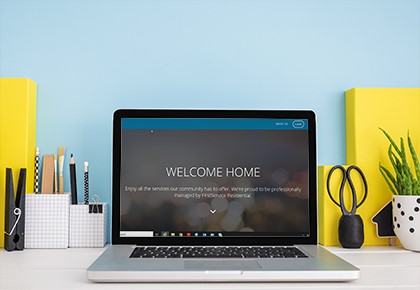Friday January 06, 2023
Be honest: How good are your association’s HOA communication tools? Can residents and board members readily contact each other and your management company? Does your method of exchanging information ensure safety, privacy, and compliance with Nevada HOA laws?


So, how do HOAs communicate? HOAs should communicate through face-to-face meetings as well as through digital forms of communication, such as email communications. Communication is the key to a successful association and will help build a relationship between the board and residents. Excellent communication is the key to a successful, vibrant community. Not only should board members communicate with each other, but the board should also be in communication with residents as well. Keeping your association and residents informed on developments helps ensure positive outcomes for everyone involved - but staying up to date can sometimes be difficult. Learn new communication best practices – check out our webinar, Connecting with Your Community: 4 Proven Communication Best Practices.
The Risks of Using the Wrong HOA Communication Tools
With technology constantly advancing, it’s important to use tools that are fit for the job. If your HOA is relying on dated software with limited abilities from years past, chances are you're not maximizing efficiency when communicating with residents and other board members. An upgrade that addresses modern requirements might increase engagement among members as well as enhance operational efficiency within your organization.In a state like Nevada where HOAs are highly regulated, it is vital to maintain up-to-date technologies for the safety and security of your members. Outdated technological infrastructure may create liability issues and open you up to potential data breaches – potentially leading you into violation of state laws! Protect yourself from legal troubles by ensuring that information is distributed properly, while access to more sensitive material remains guarded at all times.
For example, NRS 116 requires that HOAs prevent unauthorized access to certain homeowner information:
- Association records pertaining to a homeowner’s property
- A homeowner’s financial payment history
- A homeowner’s collection status in a foreclosure matter
- Homeowner violations
Features of First-Rate HOA Communication Tools
Finding the right technology to keep your HOA running is a top priority. Make sure you have an up-to-date solution that offers advanced features and safeguards against potential risks. Here are some of the features to look for:- Specifically made for your HOA community. Communication is an essential component of effective HOA management and having the right tools in place can make a significant difference to residents’ experience. A good community management company should offer tailored communication tools that are custom-made for your association's unique needs and goals.
- Communication capabilities for everyone in the community, anytime and from any device. By enabling 24-hour communication capabilities through devices such as laptops, tablets and smart phones, all community members are equipped with timely access to information. Email communications offer an additional layer of responsiveness and organization assurance by ensuring that association business is kept separate from homeowners' personal or work-related matters.
- Privacy and security protection. Nevada boards are bound by law to keep certain information confidential. For example, they are prohibited from sharing a resident’s payment history with family members, other residents or even people outside the HOA. An effective communication system is essential in managing access rights for those involved – both inside and outside the HOA – while ensuring that residents’ payment histories are kept secure. Advanced security features should be implemented to protect sensitive data against malicious threats like hackers or unauthorized users.
- Fast response times. Keep your community connected with multiple communication options and get real-time feedback. Your system should provide quick responses to resident inquiries and promote better engagement between board members and residents.
- Mass alerts. With the advanced system, your board and community manager will be able to instantly alert residents in times of critical news and information via phone or email. This feature can provide an invaluable lifeline during dangerous conditions like severe weather or other emergencies.
- Informational website. HOA members should have access to a customized community website where they can locate important documents and keep up on community news. Residents should also be able to use it to make payments, form social networks within their community, post announcements and buy and sell items.
- Flexibility to adapt to changing technology. With digital technology advancing rapidly, it's important that your HOA management keeps up. As the Community Associations Institute (CAI) predicts, technologies and tools used for communication will be dramatically impacted in upcoming years - with increased demand to incorporate them into association activities having far-reaching consequences.
FirstService Residential has helped more than 350 Nevada communities bridge the gap of effective communication with our advanced communication tools. Our FirstService Residential Connect™ community management technology enables board members, residents, and community managers to connect and communicate instantly. Using the most robust security available, we are committed to ensuring the safety and confidentiality of all your association’s communications.
Learn more about how our FirstService Residential Connect can help your community improve its communications and how all our value-added services can maximize your property values and enhance your residents’ lifestyles. Contact FirstService Residential, Nevada’s leading community management company for more information on HOA communication tools.
Disclaimer: This article is provided for information purposes only and does not constitute legal advice. Consult with your association attorney.